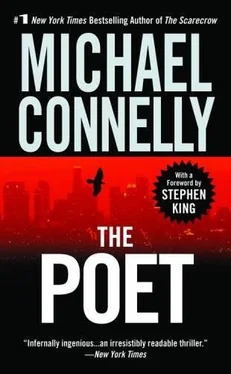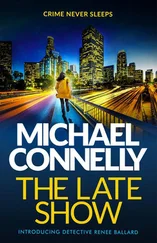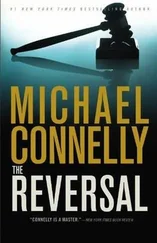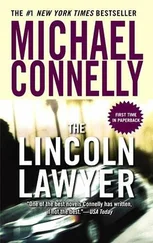This time, after he had left and closed the bedroom door, he laid a wet towel along the threshold, hoping it would prevent the odor from spreading into the area of the apartment where he was living. He still had two days to go.
I talked Greg Glenn into letting me write from Phoenix. For the rest of the morning I stayed in my room making calls, gathering comments from players in the story ranging from Wexler in Denver to Bledsoe in Baltimore. I wrote for five straight hours after that and the only disturbances I had all day were calls from Glenn himself, nervously asking how I was doing. An hour before the five o'clock deadline in Denver, I filed two stories to the metro desk.
My nerves were jangling by the time I shipped the stories and I had a headache that was almost off the scale. I had been through a pot and a half of room service coffee and a full pack of Marlboros-the most I had smoked in one sitting in years. Pacing the room and waiting for Greg Glenn's callback, I made a quick call to room service again, explained that I couldn't leave my room because I was expecting an important call, and ordered a bottle of aspirin from the hotel's lobby shop.
After it arrived I downed three tablets with mineral water from the minibar and almost immediately started feeling better. Next I called my mother and Riley and alerted them that my stories would be in the next day's paper. I also told them there was a chance that reporters from other media outlets might try to contact them now that the story was out and to be prepared. Both said they didn't want to talk to any reporters and I said that was fine, not missing the irony that I was one myself.
Lastly, I realized I had forgotten to call Rachel to tell her I was still in town. I called the Phoenix field office of the FBI but was told by the agent who answered that she was gone.
"What do you mean 'gone'? Is she still in Phoenix?"
"I'm not at liberty to say."
"Can I speak with Agent Backus then?"
"He's gone, too. Who may I ask is calling?"
I hung up and dialed the hotel's front desk and asked for her room. I was told she had checked out. So had Backus. So had Thorson, Carter and Thompson.
"Son of a bitch," I said after hanging up.
There had been a break. Had to be. For all of them to have checked out, there had to have been a major breakthrough in the investigation. And I realized I had been left behind, that my moment on the inside was surely over now. I got up and paced the room some more, wondering where they would have gone and what could have made them move so quickly. Then I remembered the card Rachel had given me. I dug it out of my pocket and punched the paging number into the phone.
Ten minutes surely seemed enough time to bounce my message off the satellite and then down to her, wherever she was. But ten minutes came and went and the phone didn't ring. Another ten minutes passed and then a half hour. Not even Greg Glenn called. I even picked up the phone to make sure I hadn't broken it.
Restless, but tired of pacing and waiting, I fired up the laptop and logged into the Rocky again. I called up my messages but there were none of any importance. I switched to my personal basket, scrolled the files and called up the one labeled HYPSTORIES. The file contained several stories on Horace Gomble, one after the other in chronological order. I began to read from the oldest story forward, my memory of the hypnotist coming back as I went.
It was a colorful history. A physician and researcher for the CIA in the early sixties, Gomble later was a practicing psychiatrist in Beverly Hills who specialized in hypnotherapy. He parlayed his skill and expertise in the hypnotic arts, as he called them, into a nightclub act as Horace the Hypnotist. First it was just appearances on open-mike nights at the clubs in Los Angeles but the act became immensely popular and he started taking it to Las Vegas for weeklong gigs on the strip. Soon Gomble wasn't a practicing shrink anymore. He was a full-time entertainer appearing on the stages of the nicest palaces on the Las Vegas strip. By the mid-seventies his name was on the billing with Sinatra's at Caesar's, albeit in smaller letters. He made four appearances on Carson's show, the last time putting his host in a hypnotic trance and eliciting from him his true thoughts on his other guests that evening. Because of Carson's caustic comments, the studio audience thought it was a gag. But it wasn't. After Carson saw the tape, he canceled the airing of the show and put Horace the Hypnotist on his blacklist. The cancellation made news in the entertainment trade papers and was a knife in the heart of Gomble's career. He never made another network television appearance until his arrest.
His shot at TV gone, Gomble's shtick got old, even in Vegas, and his stages moved further and further away from the strip. Soon he was on the road, working comedy clubs and cabarets, then finally it was the strip club and county fair circuit. His fall from fame was complete. His arrest in Orlando at the Orange County Fair was the exclamation mark at the end of that fall.
According to the trial stories, Gomble was charged with assaulting young girls whom he had chosen as volunteer assistants for matinee performances at the county fair. Prosecutors said he followed a routine of seeking a girl ten to twelve years old from the audience and then taking her backstage to prepare. Once in his private dressing room, he gave the intended victim a Coke laced with codeine and sodium pentothal-a quantity of both was seized during his arrest-and told her he must see if she could be hypnotized before the performance started. With the drugs acting as hypnotic enhancers, the girl was placed in a trance and then assaulted by Gomble. Prosecutors said the molestation primarily involved fellatio and masturbation, actions difficult to prove through physical evidence. Afterward, Gomble repressed memory of the event in the victim's mind with hypnotic suggestion.
It was unknown how many girls were victimized by Gomble. He was not discovered until a psychologist treating a thirteen-year-old girl with behavioral problems brought out her assault by Gomble during a hypnotherapy session. A police investigation was launched and Gomble was eventually charged with attacks on four girls.
At trial the defense's contention was that the events as described by the victims and police simply did not happen. Gomble presented no fewer than six highly qualified experts in hypnotism who testified that the human mind, while in a hypnotic trance, could not be persuaded or forced under any circumstances to do or even say anything that would endanger the person or be morally repugnant to them. And Gomble's attorney never missed a chance to remind the jury that there was no physical evidence of molestation.
But the prosecution won the case with essentially one witness. He was Gomble's former CIA supervisor, who testified that Gomble's research in the early sixties included experimentation with hypnosis and the use of drug combinations to create a "hypnotic override" of the brain's moral and safety inhibitions. It was mind control, and the former CIA supervisor said codeine and sodium pentothal were both among the drugs Gomble had used with positive results in his studies.
A jury took two days to convict Gomble of four counts of sexual assault of a child. He was sentenced to eighty-five years in prison to be served at the Union Correctional Institute in Raiford. One of the stories in the file said he had appealed the conviction on the basis of incompetent counsel but his plea was rejected all the way up to the Florida supreme court.
As I reached the bottom of the computer file I noticed the last story was only a few days old. I found this curious because Gomble had been convicted seven years earlier. This story also had come from the L.A. Times instead of the Orlando Sentinel, which all the previous ones had come from.
Читать дальше












